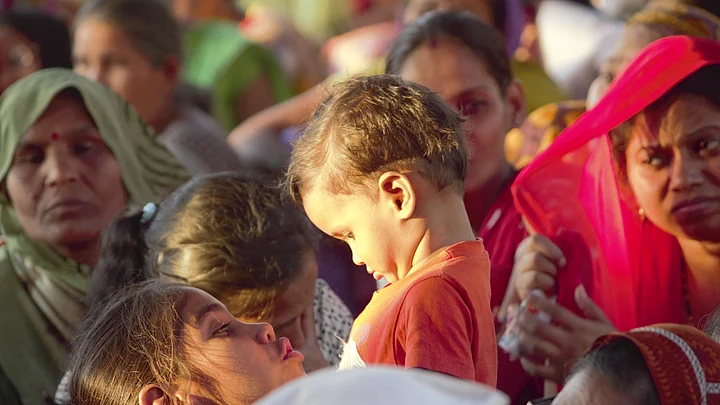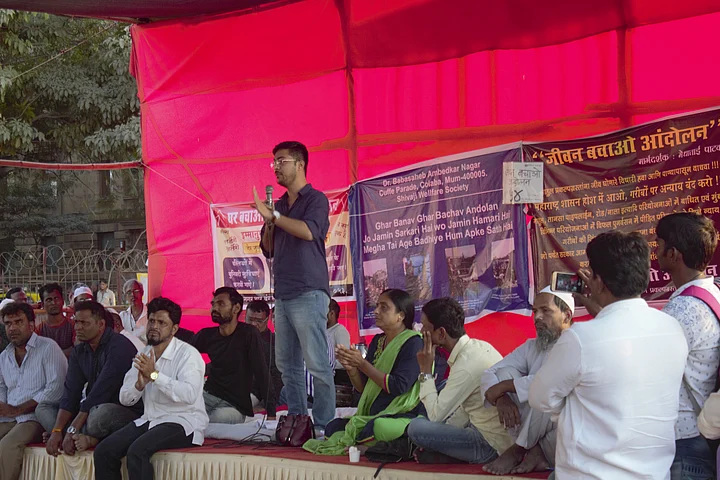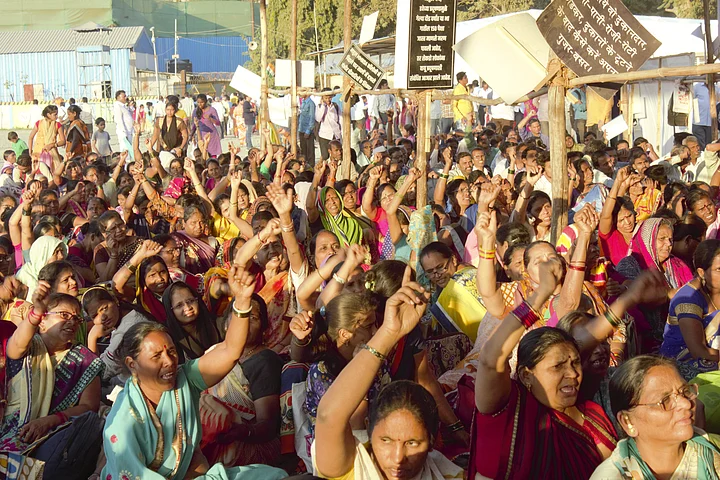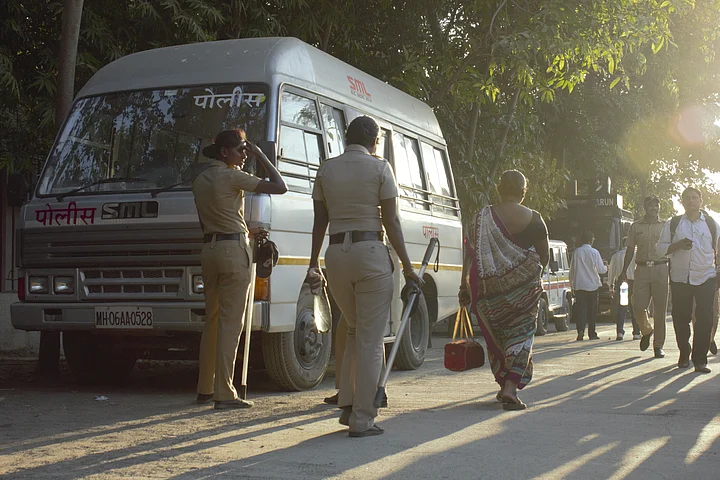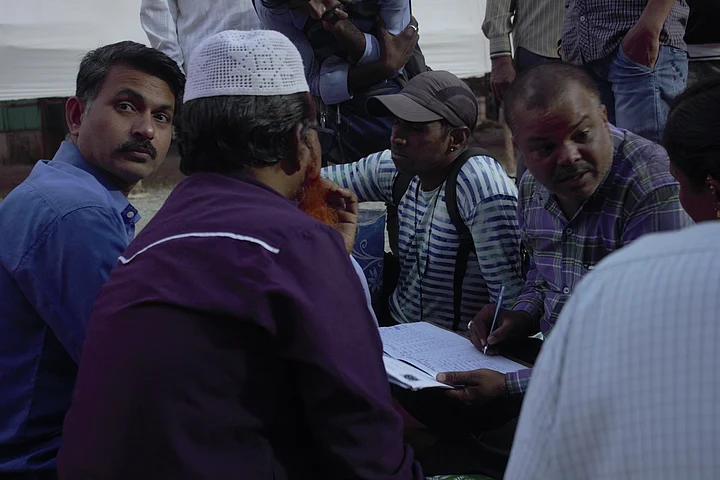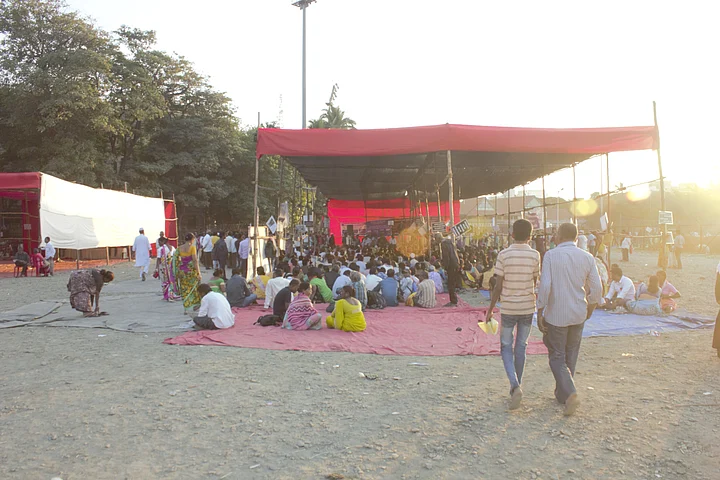Living under the open sky, even sleeping on railway platforms, is better than living in ‘toxic hell’, say residents of Mahul, a severely polluted neighbourhood of Mumbai. Thousands of them began an indefinite sit-in called ‘Jeevan Bachao Andolan’ on 28 October this year demanding relocation from the site.
Mahul is home to several chemical and fertiliser factories and petroleum refineries. The National Green Tribunal had said the area was “unsafe for human habitation” in an order in 2014.
Yet, around 11,000 families were allotted houses there as part of the rehabilitation process after the Brihanmumbai Municipal Corporation (BMC) demolished their slum hutments in various parts of the city in 2017.
The 5,500 families that moved into their tenements have been battling a range of health complications. This includes skin infections, lung diseases, paralysis, and of late, symptoms matching Tuberculosis.
The Bombay High Court, in response to a petition filed by the affected residents, had asked the state government to find alternative site within a month in August 2018. The government, however, has been dragging its heels on the matter, while also allegedly intimidating activists leading the struggle.
Jeevan Bachao Andolan
“It’s not just our lives, but the lives of our little children that are at stake,” says Rekha Gadge, one of the rehabilitees and demonstration participants at Azad Maidan, Mumbai’s designated area for protests and the current venue of the sit-in.
“Over 150 people have died in the last four years after moving to Mahul and developing health complications,” says Bilal Khan, an activist with Ghar Bachao Ghar Banao Andolan(GBGBA), which is leading the indefinite sit-in. “Earlier this week, state CID officials visited my house to question me about our activities, but the attempt was clearly to intimidate us and weaken the struggle,” says Khan.
Mahul residents launched the Jeevan Bachao Andolan on 28 October in Mumbai’s Vidya Vihar suburb, the erstwhile home of several rehabilitees. Since then, 1-2 members of the 5,500 affected families have been spending their days at the dharna tent, hoping authorities respond to their collective voice.
The dharna site was shifted to Azad Maidan on 15 December to draw the attention of authorities and escalate pressure on the government for relocation. Politicians from Congress, Aam Admi Party and Shiv Sena have addressed the protestors from the dharna stage, pledging their support to the struggle.
“But the police have been giving us a hard time,” says Anita Dhole, a Mahul resident and one of the leaders of the struggle. “They drive us out every evening as protestors are not allowed to stay overnight in Azad Maidan.”
A large contingent of protestors have consequently been spending nights on the platform at Chhatrapati Shivaji Terminus located opposite Azad Maidan.
Promises and Hope
The state government told the High Court on 1 October 2018, during a hearing in connection with the petition filed by Mahul residents, that no alternative accommodation sites were available to house affected families.
However, on 20 December, 54 days after the launch of the agitation, the Maharashtra Housing Development Authority announced 350 families would be provided alternative accommodation in other parts of the city.
GBGBA is now identifying families whose members suffer from the most serious ailments, so they can be moved out of Mahul on priority.
On 21 December, the Maharashtra government constituted a committee to study the possibility of providing alternative accommodation, but did not specify any date for resolution of the matter.
The agitation, however, will go on till all affected families are allocated alternative accomodation. “We have seen several politicians and government bodies make and break their promises and will not budge all 5,500 families are moved to a safe location,” says Khan. The next hearing of the High Court in connection with the petition on 17 January.
(The writer is an independent journalist and researcher, and currently teaches at a college in Bengaluru. He can be reached at @b_aritra on Twitter and Instagram.)
(At The Quint, we question everything. Play an active role in shaping our journalism by becoming a member today.)
